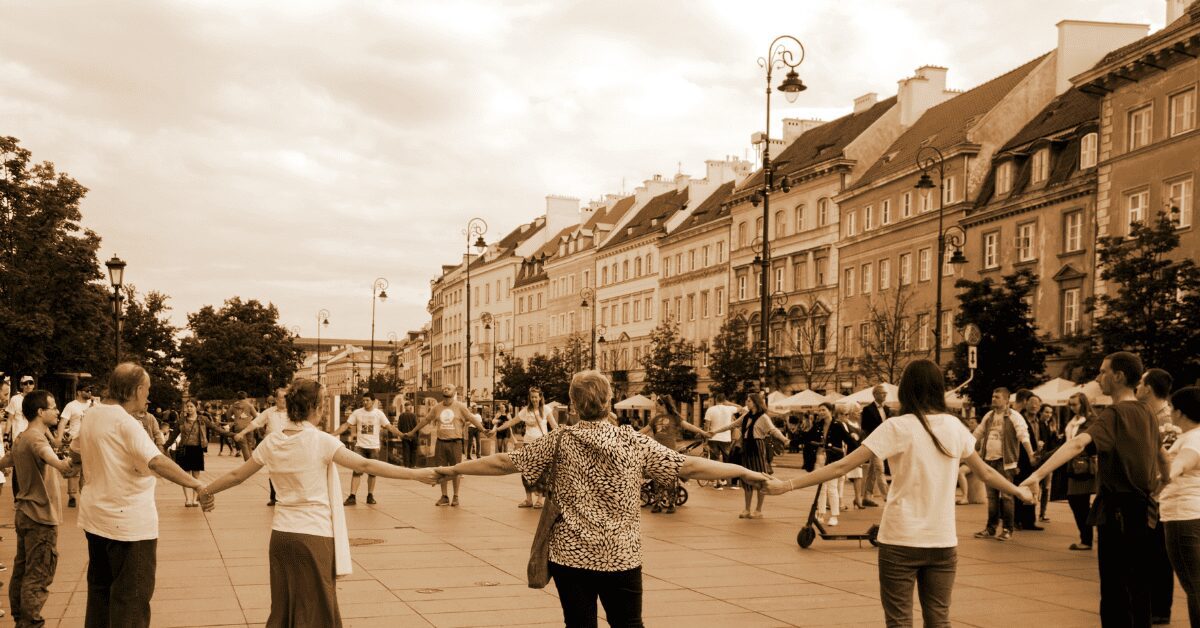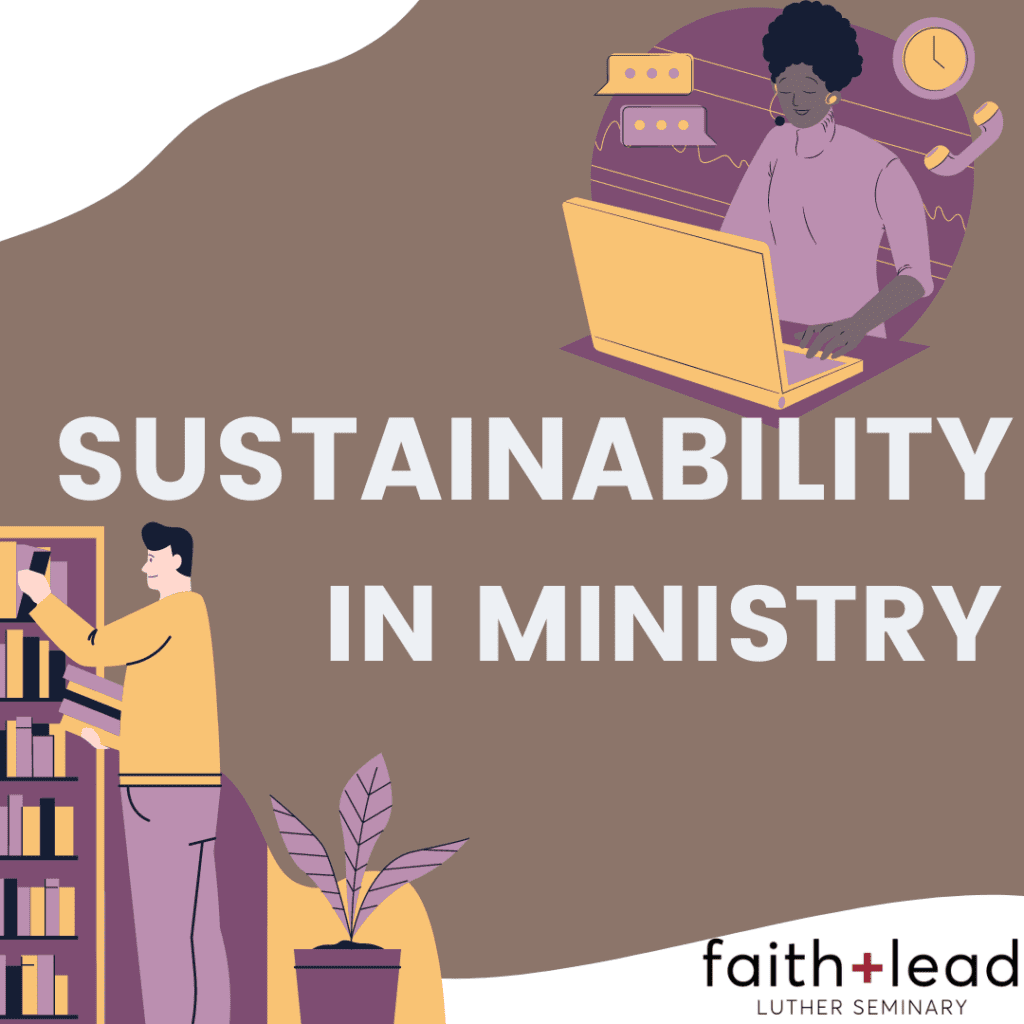When asked to consider writing on a theme, I always start with a dictionary definition of the word. We often think we know what a word means, and we may know the basics, but there are sometimes other definitions that expand our understanding of how it applies to us. According to Dictionary.com, “sustainability” is a noun that means “the ability to be sustained, supported, upheld, or confirmed.” Those attributes are what I normally think of when I hear the word, but the environmental science definition from Dictionary.com caught my attention this time: “the quality of not being harmful to the environment or depleting natural resources, and thereby supporting long-term ecological balance.”
This struck me as a better way to consider sustainability for clergy and ministry leaders. How do we:
- Do no harm to our environment: the places and groups in which we live, move, and have our being physically and emotionally?
- Not deplete our natural resources: time and energy that we have for our work, life, and spiritual integration?
- Support long-term ecological balance of our lives: our relationship with ourselves, God, and the things we interact with outside of ourselves?
Reflecting on these questions will bring about a variety of answers. Some might discern that they need to seek out an individual option like a spiritual director, therapist, and/or confessor (you can read about the difference between them here). Others might need something physical for the body like a new means of exercising or nourishing their bodies in positive ways. Some might decide that they are longing for a group process so that they can preserve some of their natural resources. Of course, some might need a bit of all three areas, but I want to focus on the last one as it is a specialty in my clergy care oriented therapy practice.
I started Clergy Care Circles in the autumn of 2019 stemming from my own discernment about what types of groups had helped me feel supported in ministry in the past and how I could provide that type of space for other clergy. What I had heard for years from colleagues, therapy clients, and spiritual directees was that they were overscheduled and exhausted by always being the one in charge and making the decisions at work (and at home, especially from women). I wanted to create a space that felt like a spa for their soul so-to-speak—where they felt completely cared for. I heard from clergy that they did not have time to pray as much as they wanted or focus on discernment for themselves, so providing this felt crucial. Clergy Care Circles are a direct result of these conversations and my own discernment. Here are the main elements that directly support sustainability as defined above:
- They are facilitated by me on Zoom so that clergy can have a break from leading.
- They are broken into four-month sessions so clergy do not have to commit to something longterm. Clergy never have to sign up again, or they can sign up every time—or even here and there. My feelings are not hurt whatever they choose. They need to discern what is right for them—there is no obligation or guilt-tripping. Different seasons bring different needs.
- They are once a month for two hours so there is enough time for individual and small group reflection, as well as connection with others in ministry.
- They are based on a theme word each time. As much as many would love to have lengthy swaths of time to let the Spirit move, most do not, so focusing on one theme allows the Spirit to flow within a framework. This makes the time less distracting and anxiety producing. It also prevents the time from turning into a complaint circle, which is important for the goal of sustainability.
- I offer a therapeutic exercise at the end of each and give them a resource sheet that they can take with them.
- Clergy Care Circles, as I offer them, are interdenominational so there is also no fear in sharing something vulnerable and having it being reported back to someone higher up. Clergy need places that they feel safe sharing their spiritual needs and who they are without church politics and judgment.
This is a way that I can promote resilience through sustainability in a clergy group setting. I know there are other wonderful therapists, spiritual directors, and clergy coaches who offer their own version of group work, too.
Your turn
- If this practice sounds life-giving to you, check out the upcoming dates for Soul Spa’s Clergy Circles or check in with spiritual directors you know about what they offer. The proliferation of virtual opportunities because of the pandemic means that you are not limited by geography. Remember, this counts as continuing education/professional development!
- Perhaps—only if this doesn’t sound like another burdensome item on your to-do list—consider inviting an already-trusted group of colleagues to take turns creating a circle of care for each other. Use a template of your practices for easy replication. Make the circle big enough that any one member needs to facilitate only rarely.




